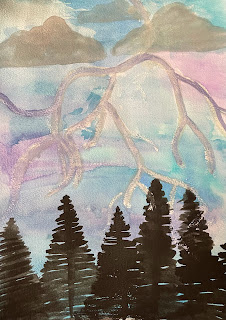Final 2022-2023 Blog
Final Andrew Sibbald Blog
Thursday, June 29, 2023
As the 2022-2023 school year comes to a close I would like to say thank you to the Andrew Sibbald School community. It has been a pleasure to work with each of you and will look back at our time together with a smile.
 |
| Grade Three "Wordle Wednesday" |
Play word games such as Roll and Read, Scrabble, Boogle and Wordle.
- Explore our natural world. Take the time to ask those deeper questions. Why do you think this happened? How does it make you feel? What would happen if…?
Read together! Find a new favourite (author, illustrator or genre)
Create a book club with friends or family.
Spend time doing things that involve reading instructions like trying a new recipe.
Write often! (Writing stories, post cards / letters, journal entries, and even drawing comic books.)
Keep a reading log to record all the fantastic books you read.
Play "20 Questions!"
Visit your local library.
Join a reading challenge.








































